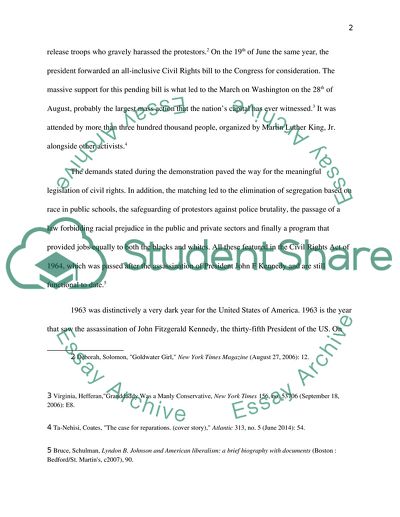Cite this document
(“Importance of 1963 and 1964 in the History of the US Essay”, n.d.)
Importance of 1963 and 1964 in the History of the US Essay. Retrieved from https://studentshare.org/history/1675969-importance-of-1963-and-1964-to-the-history-of-the-united-states
Importance of 1963 and 1964 in the History of the US Essay. Retrieved from https://studentshare.org/history/1675969-importance-of-1963-and-1964-to-the-history-of-the-united-states
(Importance of 1963 and 1964 in the History of the US Essay)
Importance of 1963 and 1964 in the History of the US Essay. https://studentshare.org/history/1675969-importance-of-1963-and-1964-to-the-history-of-the-united-states.
Importance of 1963 and 1964 in the History of the US Essay. https://studentshare.org/history/1675969-importance-of-1963-and-1964-to-the-history-of-the-united-states.
“Importance of 1963 and 1964 in the History of the US Essay”, n.d. https://studentshare.org/history/1675969-importance-of-1963-and-1964-to-the-history-of-the-united-states.


